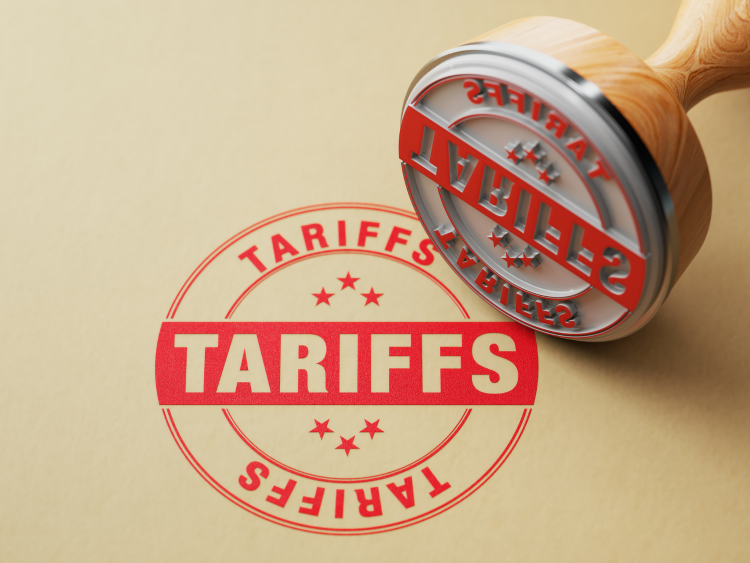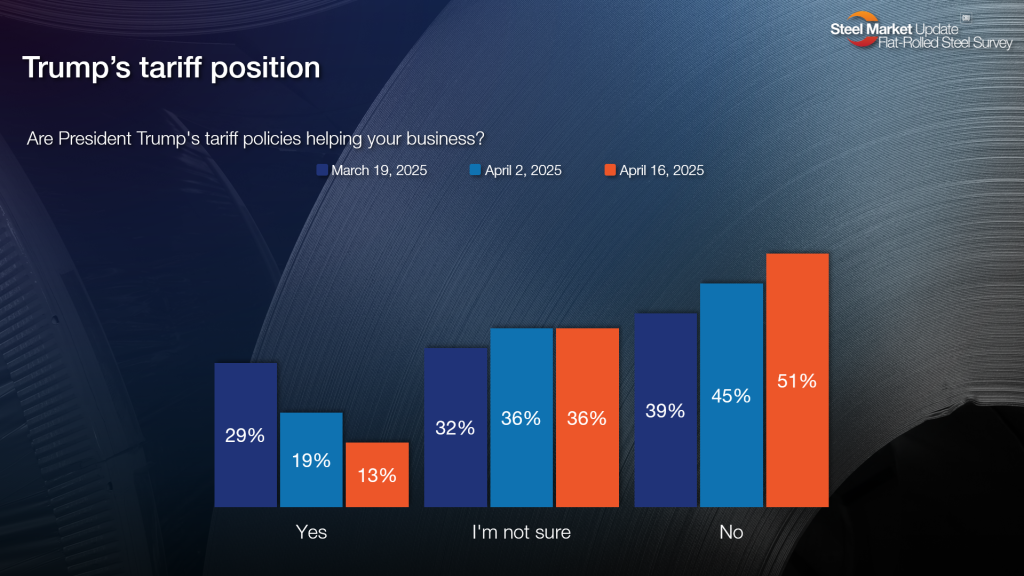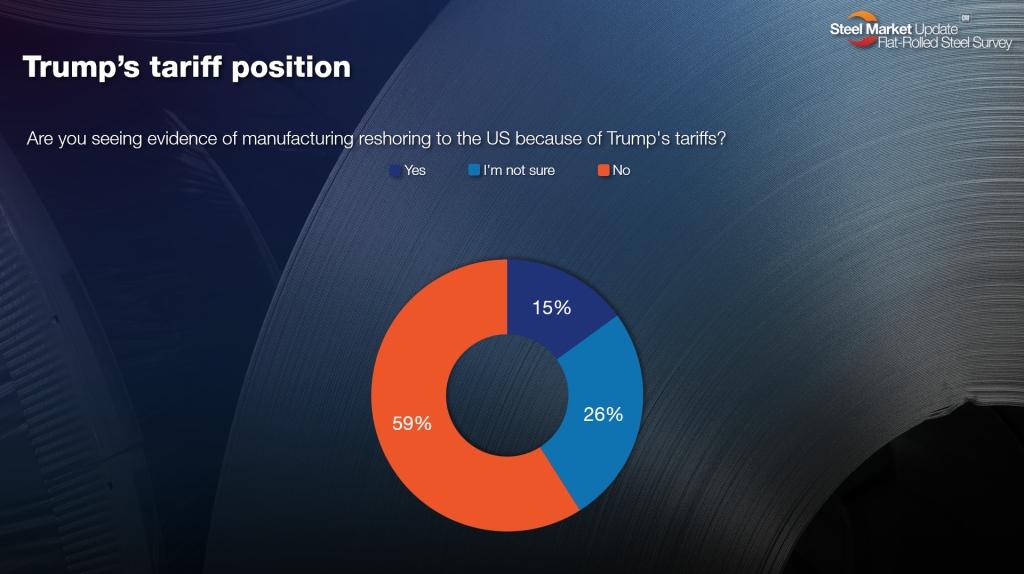Government/Policy

April 17, 2025
SMU Survey: Less support seen for Trump tariff policies
Written by Stephanie Ritenbaugh
Fewer people think President Donald Trump’s trade policies are helping their business. And a majority of our respondents think it’s too early to say whether the tariffs are going to bring more manufacturing to the US, according to SMU’s most recent survey data.
The survey found that about 50% of respondents said Trump’s tariffs were not supporting their operations vs. 45% two weeks earlier. Uncertainty remained the same from two weeks ago, with 36% saying they were unsure.
Still, some folks – about 13% – believe that trade will work out better in the future once the dust settles. But that’s down from 19% in our last survey.
Remarks on tariffs
Here are responses to the question: Are President Trump’s tariff policies helping your business? Why or why not?
“A rising tide lifts all boats, but said tide appears to be receding.“
“Customers simply do not know how to forecast or project sales due to the uncertainty of the market and the on again off again tariffs.“
“Automotive market is very integrated in USA, CAN and MEX.”
“I went from ‘Yes’ to ‘I’m not sure’ to ‘No’ on this question in the past few months. The tariffs have unintentionally forced everyone to press ‘PAUSE’ on CapEx spends. Not what we wanted.”
“We use and NEED imported steel.”
“Still too volatile to figure it out.”
“Steel prices are higher due to his actions.”
“Getting more for my steel because mills raised prices.”
“They bring confusion and uncertainty.”
“Disrupting a bit, making some things a bit harder, but overall much better especially solidifying prices.”
“When prices go up, everyone, yes, everyone, does better.“
“Uncertainty depresses demand. And they are poorly thought out.”
“Wind changes direction so quickly. No stability/organization.“
“Recession fears stopping customers from buying.”
“They are hurting us now with steel costs and uncertainty in the market, but we remain hopeful they will help us in the future.”
“We cannot pass on increases.”
“Fundamentally irrational economic policy.”
“Needs to set reasonable and logical tariffs and then leave everything alone instead.”
“Hurting. Scrap is free to come in tariff free. Thus, all supply is focused on North America.“
“Too much chaos.”
“Short term no, due to uncertainty but long term yes.”

Wait and see
When it comes to reshoring, the survey found that most people – nearly 60% – believe it’s too early to say whether Trump’s taxes on goods will incentivize more companies to move their operations to the US to avoid costs. Another 26% don’t think the recent policy announcements will bring manufacturing back. About 15% are in favor of the policy’s stated goals.
Remarks on reshoring
Here’s how they answered the question: “Are you seeing evidence of manufacturing reshoring to the US because of Trump’s tariffs? If yes, where? If no, why not?”
“Small pockets of quote activity/evaluating domestic supply chains, but no firm orders.”
“If it happens it will take years…”
“Many of our US customers are talking about it but we have not seen any evidence as of yet.”
“We are quoting parts to bring back into the USA.”
“You can’t reshore or nearshore overnight, this is a silly question.”
“We’re seeing some headlines supporting both the ‘Yes’ and ‘No’ here. I just think it is too early at this point.”
“That takes years. For some industries they can shift production to US plants (automotive) but it is going to devastate business in general. We don’t have the cost and employment to reshoring the majority of what we import.”
“A lot of talk. We’ll see how many billions actually reshore.”
“Some RFQs coming in, but no one knows what to expect.”
“This will take years and the labor skills are not available.”
“Americans won’t want the jobs being done by offshore. Also, chasing manufacturing jobs is nonsense as the majority of manufacturing jobs will not exist in 10-15 years (think automation).”
“You can’t reopen or build manufacturing overnight. Will take years to see true impact and results.”
“Foundries and other heavy items are being reshored to save on transit and tariffs.”








